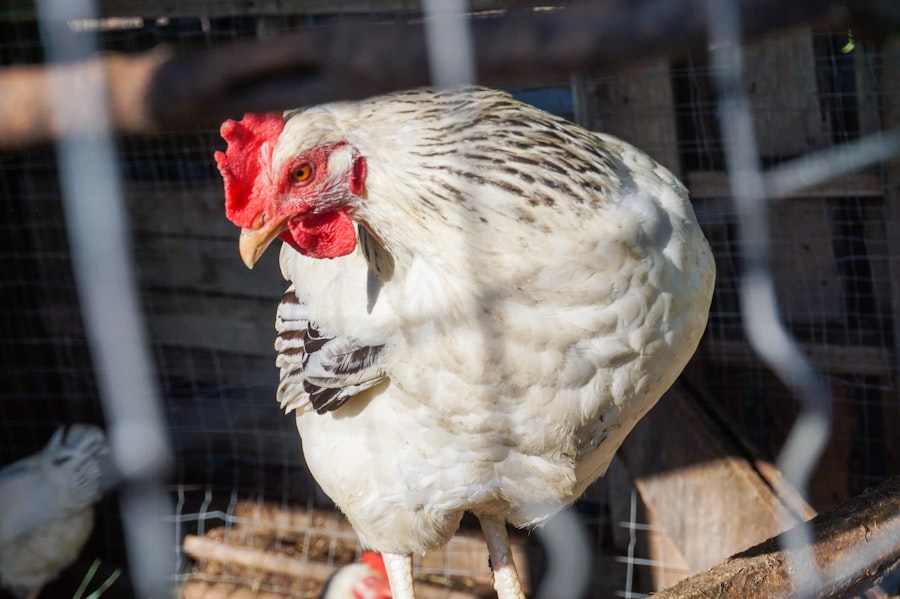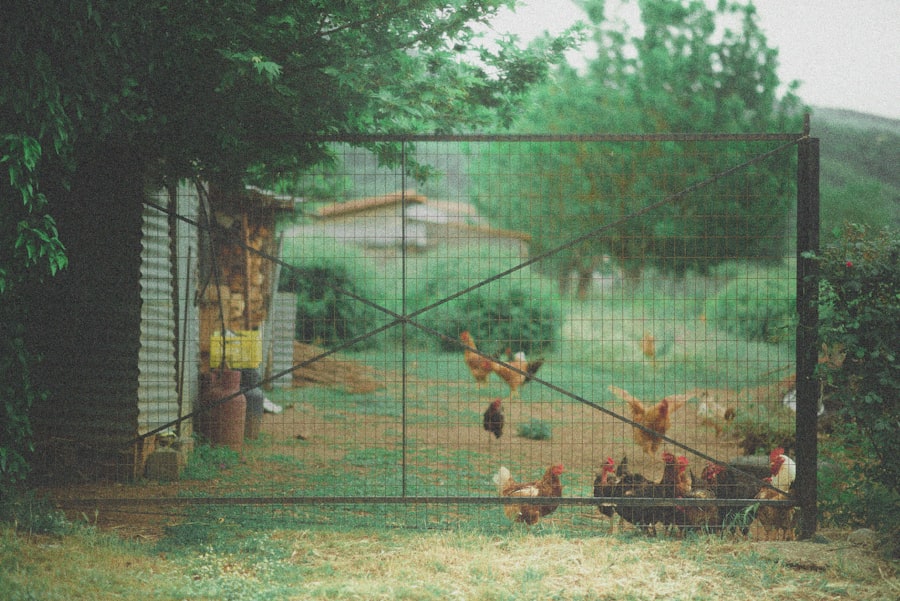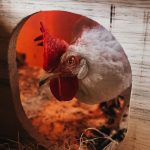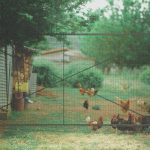Chicken care involves several essential principles that owners should understand. Chickens require a secure coop to protect them from predators and weather conditions. Their diet should consist of a balanced mix of grains, protein, fruits, and vegetables, along with constant access to clean water.
Proper chicken care extends beyond physical needs to include social interaction and mental stimulation. Chickens need adequate space for roaming, scratching, dust bathing, and perching. Regular health monitoring is crucial, as chickens can be susceptible to various illnesses.
Chickens are social creatures that function best in a flock setting. They establish a hierarchical pecking order, necessitating sufficient space to prevent overcrowding. As natural foragers, chickens enjoy scratching and pecking for insects and plants.
Providing access to outdoor areas or allowing free-range behavior can satisfy these instincts. Understanding and accommodating chickens’ basic needs and natural behaviors is key to creating an environment where they can thrive. This includes considering their social structure, foraging instincts, and space requirements.
By addressing these factors, chicken owners can ensure the health and well-being of their flock.
Table of Contents
- 1 Selecting the Right Breed for Your Needs
- 2 Creating a Safe and Functional Coop
- 3 Feeding and Watering Your Chickens
- 4 Health and Disease Prevention
- 5 Egg Production and Collection
- 6 Tips for Integrating Chickens into Your Lifestyle
- 7 FAQs
- 7.1 What is a “How to Keep Chickens” book for beginners?
- 7.2 What are some key topics covered in a “How to Keep Chickens” book for beginners?
- 7.3 Why is a “How to Keep Chickens” book for beginners helpful?
- 7.4 Are there different types of “How to Keep Chickens” books for beginners?
- 7.5 Can a “How to Keep Chickens” book for beginners be used as a reference for experienced chicken keepers?
Key Takeaways
- Understanding the basics of chicken care is essential for keeping your flock healthy and happy.
- Selecting the right breed for your needs involves considering factors such as egg production, temperament, and climate adaptability.
- Creating a safe and functional coop requires attention to details such as predator-proofing, ventilation, and nesting boxes.
- Feeding and watering your chickens properly is crucial for their overall health and egg production.
- Health and disease prevention strategies are important for maintaining a thriving flock and preventing potential outbreaks.
Selecting the Right Breed for Your Needs
Purpose of Your Flock
First and foremost, you’ll want to think about the purpose of your flock. Are you primarily interested in egg production, meat production, or simply having chickens as pets? Different breeds are better suited for different purposes, so it’s important to do your research before making a decision.
Breed Characteristics
If you’re interested in egg production, breeds such as the Rhode Island Red, Leghorn, or Australorp are known for their high egg-laying capabilities. On the other hand, if you’re looking for a dual-purpose breed that can provide both eggs and meat, breeds like the Plymouth Rock or Orpington may be a good choice. If you’re primarily interested in meat production, breeds such as the Cornish Cross or Freedom Ranger are known for their fast growth and high meat yield.
Climate and Environment
In addition to considering the purpose of your flock, you’ll also want to think about the climate and environment in which you live. Some breeds are better suited for cold climates, while others are more heat-tolerant. By taking these factors into account, you can select a breed that is well-suited to your specific needs and circumstances.
Temperament and Lifestyle
Selecting the right breed of chicken for your needs also involves considering the temperament of the breed. Some breeds are known for being more docile and friendly, making them great choices for families with children or first-time chicken owners. Other breeds may be more flighty or independent, which could make them better suited for experienced chicken keepers. By taking the time to research different breeds and their characteristics, you can find a breed that fits well with your lifestyle and preferences.
Creating a Safe and Functional Coop

Creating a safe and functional coop is essential for the well-being of your chickens. The coop should provide protection from predators such as foxes, raccoons, and birds of prey, as well as shelter from the elements. When designing or selecting a coop, it’s important to ensure that it is well-ventilated to prevent moisture buildup and ammonia levels from rising.
Additionally, the coop should have adequate space for the number of chickens in your flock, as overcrowding can lead to stress and health issues. The coop should also include roosting bars for the chickens to perch on at night, as well as nesting boxes for egg-laying. These nesting boxes should be filled with clean bedding material such as straw or wood shavings to provide a comfortable and hygienic environment for egg-laying.
It’s also important to regularly clean and maintain the coop to prevent the buildup of waste and bacteria. In addition to the physical structure of the coop, it’s important to consider the location of the coop within your property. The coop should be situated in an area that is well-drained and free from standing water, as well as being protected from strong winds and direct sunlight.
By taking these factors into account when creating your coop, you can ensure that your chickens have a safe and comfortable living environment. When creating a safe and functional coop, it’s important to consider the security of the coop against potential predators. This may involve installing hardware cloth around the coop to prevent predators from digging underneath or breaking through the walls.
Additionally, adding locks or latches to doors and windows can help prevent unauthorized access. It’s also important to regularly inspect the coop for any signs of wear or damage that could compromise its security.
Feeding and Watering Your Chickens
Feeding and watering your chickens is an essential part of their care routine. Chickens require a balanced diet that includes a mix of grains, protein, and fresh fruits and vegetables. A commercial layer feed is a good option for laying hens, as it provides the necessary nutrients for egg production.
Additionally, offering supplemental treats such as mealworms, fruits, and vegetables can help keep your chickens healthy and happy. It’s important to provide access to clean water at all times, as chickens can quickly become dehydrated if they don’t have enough to drink. Waterers should be kept clean and free from debris to prevent contamination.
In cold weather, it’s important to prevent water from freezing by using heated waterers or regularly replacing frozen water with fresh water. In addition to providing a balanced diet and clean water, it’s important to consider the feeding and watering setup within the coop. This may involve using feeders and waterers that are designed to prevent spillage and waste, as well as being easy to clean and refill.
By taking these factors into account, you can ensure that your chickens have access to the food and water they need to thrive. Feeding and watering your chickens also involves monitoring their intake and making adjustments as needed. For example, during hot weather, chickens may require additional water to stay hydrated, while during molting or periods of high egg production, they may benefit from supplemental protein.
By observing your flock and their behavior, you can make informed decisions about their feeding and watering needs.
Health and Disease Prevention
Maintaining the health of your flock is essential for their overall well-being. This involves regular observation of your chickens for any signs of illness or injury, as well as providing them with a clean living environment and balanced diet. It’s also important to practice good biosecurity measures to prevent the introduction and spread of diseases within your flock.
One key aspect of disease prevention is vaccination. Depending on your location and local disease risks, it may be recommended to vaccinate your chickens against common diseases such as Marek’s disease or Newcastle disease. Consult with a veterinarian or poultry health expert to determine which vaccinations are necessary for your flock.
In addition to vaccination, it’s important to practice good hygiene within the coop and surrounding areas. This may involve regularly cleaning and disinfecting the coop, as well as practicing proper waste management to prevent the buildup of bacteria and parasites. It’s also important to quarantine new birds before introducing them to your existing flock to prevent the spread of any potential diseases.
Regular health checks are also important for monitoring the overall well-being of your flock. This may involve observing their behavior, checking for any signs of illness or injury, and conducting regular physical exams. By staying proactive about your chickens’ health, you can catch any potential issues early on and take appropriate action.
Egg Production and Collection

Optimal Conditions for Egg Production
To encourage healthy egg production, it’s essential to provide your hens with a balanced diet, a clean living environment, and access to fresh water at all times. Additionally, ensuring enough daylight hours can stimulate egg-laying in hens.
Collecting and Handling Eggs
When collecting eggs, it’s vital to check nesting boxes regularly to prevent eggs from piling up or becoming dirty. Eggs should be collected daily and stored in a cool place until they are ready to be used. It’s also crucial to handle eggs with care to prevent cracking or contamination.
Monitoring Egg Production
In addition to collecting eggs, it’s essential to monitor egg production within your flock. This involves keeping track of how many eggs are being laid each day and identifying any potential issues that could be affecting egg production. By staying proactive about egg production, you can ensure that your hens remain healthy and productive.
Factors Affecting Egg Production
Egg production can be affected by various factors such as age, breed, diet, and environmental conditions. By understanding these factors and making adjustments as needed, you can help maximize egg production within your flock. It’s also important to consider factors such as molting or broodiness, which can temporarily affect egg production in hens.
Tips for Integrating Chickens into Your Lifestyle
Integrating chickens into your lifestyle can be a rewarding experience that provides fresh eggs, natural pest control, and entertainment. However, it’s important to consider various factors when adding chickens to your household. This may involve checking local regulations regarding chicken keeping, as well as considering how chickens will fit into your daily routine.
Before bringing chickens into your home, it’s important to consider factors such as space requirements, noise levels, and potential odor issues. Additionally, it’s important to consider how chickens will interact with other pets or family members within your household. By taking these factors into account, you can ensure a smooth integration of chickens into your lifestyle.
It’s also important to consider the time commitment involved in caring for chickens on a daily basis. This may involve feeding and watering them each day, cleaning their living environment regularly, and monitoring their overall health and well-being. By understanding these responsibilities upfront, you can make informed decisions about whether keeping chickens is right for you.
Integrating chickens into your lifestyle also involves considering how they will fit into your overall property layout. This may involve creating a functional coop setup that is easily accessible for feeding and cleaning, as well as providing enough space for chickens to roam freely if they are allowed to free-range. By taking these factors into account when integrating chickens into your lifestyle, you can ensure that they have everything they need to thrive while fitting seamlessly into your daily routine.
In conclusion, understanding the basics of chicken care is essential for providing a safe and healthy environment for your flock. Selecting the right breed for your needs involves considering factors such as purpose, climate suitability, temperament, and local regulations. Creating a safe and functional coop involves providing protection from predators and the elements while ensuring adequate space and ventilation for your chickens.
Feeding and watering your chickens requires providing a balanced diet and clean water at all times while monitoring their intake and making adjustments as needed. Health and disease prevention involves practicing good biosecurity measures such as vaccination, hygiene practices within the coop area, quarantine procedures for new birds, regular health checks on existing birds while staying proactive about their health overall well-being.
Egg production involves providing optimal conditions such as balanced diet access fresh water at all times while monitoring egg production within your flock making adjustments as needed considering various factors such as age breed diet environmental conditions molting broodiness which can temporarily affect egg production in hens.
Integrating chickens into your lifestyle involves considering various factors such as space requirements noise levels potential odor issues how chickens will interact with other pets family members within household time commitment involved in caring for chickens on daily basis property layout creating functional coop setup easily accessible feeding cleaning providing enough space for chickens roam freely if they are allowed free-range fitting seamlessly into daily routine
If you’re interested in learning more about how to care for chickens, you may also want to check out this article on chicken coop door size. It provides valuable information on the importance of the size of the door in your chicken coop and how it can impact the health and safety of your flock. This article, along with the book for beginners, can help you create a comfortable and secure environment for your chickens.
FAQs
What is a “How to Keep Chickens” book for beginners?
A “How to Keep Chickens” book for beginners is a comprehensive guide that provides essential information and practical advice for individuals who are new to raising chickens. It covers topics such as choosing the right breed, setting up a coop, feeding and caring for chickens, and troubleshooting common issues.
What are some key topics covered in a “How to Keep Chickens” book for beginners?
Some key topics covered in a “How to Keep Chickens” book for beginners may include selecting the right breed of chickens, setting up a suitable coop and run, providing proper nutrition and healthcare, understanding chicken behavior, and managing egg production.
Why is a “How to Keep Chickens” book for beginners helpful?
A “How to Keep Chickens” book for beginners is helpful because it provides valuable information and guidance for individuals who are new to raising chickens. It can help beginners avoid common mistakes, understand the needs of their chickens, and create a healthy and productive environment for their flock.
Are there different types of “How to Keep Chickens” books for beginners?
Yes, there are different types of “How to Keep Chickens” books for beginners, ranging from general guides to breed-specific books. Some books may focus on organic or sustainable practices, while others may cater to specific climates or regions.
Can a “How to Keep Chickens” book for beginners be used as a reference for experienced chicken keepers?
Yes, a “How to Keep Chickens” book for beginners can also serve as a valuable reference for experienced chicken keepers. It may offer new insights, advanced tips, or specific information that can benefit even those with prior experience in raising chickens.
Meet Walter, the feathered-friend fanatic of Florida! Nestled in the sunshine state, Walter struts through life with his feathered companions, clucking his way to happiness. With a coop that’s fancier than a five-star hotel, he’s the Don Juan of the chicken world. When he’s not teaching his hens to do the cha-cha, you’ll find him in a heated debate with his prized rooster, Sir Clucks-a-Lot. Walter’s poultry passion is no yolk; he’s the sunny-side-up guy you never knew you needed in your flock of friends!







